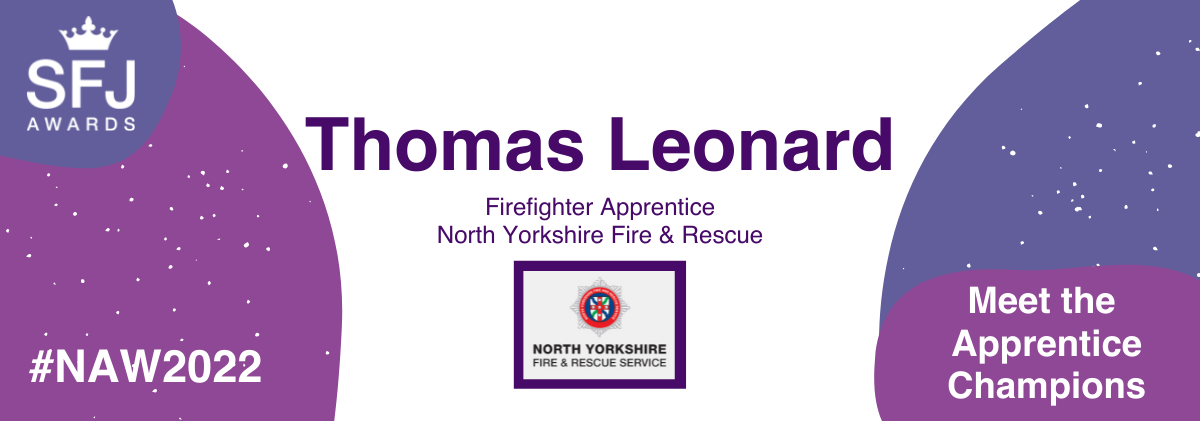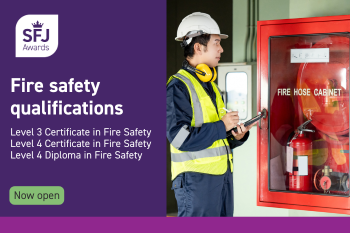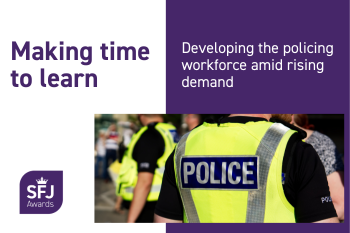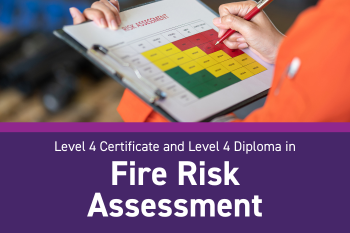For Thomas Leonard, working as an Apprentice Firefighter has given him “a strong sense of pride. Working for North Yorkshire Fire and Rescue Service means I get to help others on a daily basis.” Across England in 2019/20, 82,200 others started an apprenticeship within the Health, Public Services and Care sector, and many of them, like Thomas, will be feeling the high levels of job satisfaction that come from helping others and serving their communities.
Fire & Rescue Qualifications
As the leading Awarding Organisation for Fire and Rescue Qualifications, we offer a wide range of training for individuals, teams, and employers across fire and rescue.
Explore QualificationsFor many, an apprenticeship is an excellent way of earning as you learn, and supporting yourself with a salary whilst training for a new career. Additionally, apprentices typically find themselves surrounded by a team of colleagues who can support, encourage and motivate them, ensuring they reach their full potential. For Thomas, this has been something he has valued whilst working for the North Yorkshire Fire and Rescue Service – “My career development has really benefitted and been supported by the colleagues on my watch. I have enjoyed responding to operational incidents with my colleagues and I have been able to use skills learnt in my initial training in the real world – the training moves beyond being textbook or classroom-based very quickly, partly thanks to this great support from colleagues.”
Another highlight of enrolling in an apprenticeship pathway is the way learning methods are combined and balanced between on-the-job and classroom-based methods and independent learning. Thomas says, “To get me up to speed quickly, my training initially involved reading through my service’s standard operating procedures and National Operational Guidance, but I was also set tasks to learn about our station’s specialisms in more detail, which I then had to present back to my watch. Through this, I enjoyed learning about firefighter decontamination, environmental protection equipment, breathing apparatus guidelines, path finding, heavy rescue, and detection and monitoring equipment.” Following on from more desk-based or station-based types of learning, apprentices learn to apply their new knowledge and understanding in the real world – “I have been able to work as part of a team to rescue people from entrapment and to resolve fire incidents at commercial properties, residential properties and even an incident affecting the infrastructure that supported hundreds of homes – it has been so varied” says Thomas.
Advice for your Firefighter End-Point Assessment
The focus during an apprenticeship is on learning and training rather than exams, but towards the end, all apprentices in England must pass an End-Point Assessment to qualify. This can involve practical observations, submission of a portfolio, professional discussions and, depending on the type of apprenticeship, knowledge-based multiple-choice question tests. Thomas has some advice for these. He says, “Carefully read the standards you will be assessed against. Having a good understanding of the mark schemes for your portfolio, professional discussion and practical observation help you know what is expected during your End-Point Assessment.”
Organisations like SFJ Awards are also on hand to provide guidance to employers so they are well-placed to support their apprentices with End-Point Assessment preparations. For Thomas, this meant he has taken part in drilling exercises with colleagues, especially to target areas where he felt less confident. “For my professional discussion, I have practised with my watch manager using the STARR method for structuring my answers (Situation, Task, Action, Review, Reflect), and I plan to do this again closer to the assessment. I’ll also be practising mock questions and going through the answers with my watch manager. Knowing colleagues are available to help you makes a big difference.”
Firefighter End-Point Assessment FAQs
Head to our frequently asked questions to find out more about the Operational Firefighter End-Point Assessment
Explore FAQsCareer Prospects for Qualified Apprentices
Once Thomas completes his End-Point Assessment, he says, “I plan to continue to develop as a firefighter, and, later in my career, I hope to achieve qualifications that will allow me to instruct others in areas such as breathing apparatus, fire behaviour training and even road traffic collisions”. Fully qualified firefighters earn an average salary of between £23,800 and £39,300, and apprentices are also eligible to become professionally registered with the Institution of Fire Engineers at Technician Level. Beyond this, as Thomas highlights, there are many ways for firefighters to progress through their careers – many go on to help train others or to become crew managers, watch managers, station managers and even area managers.





